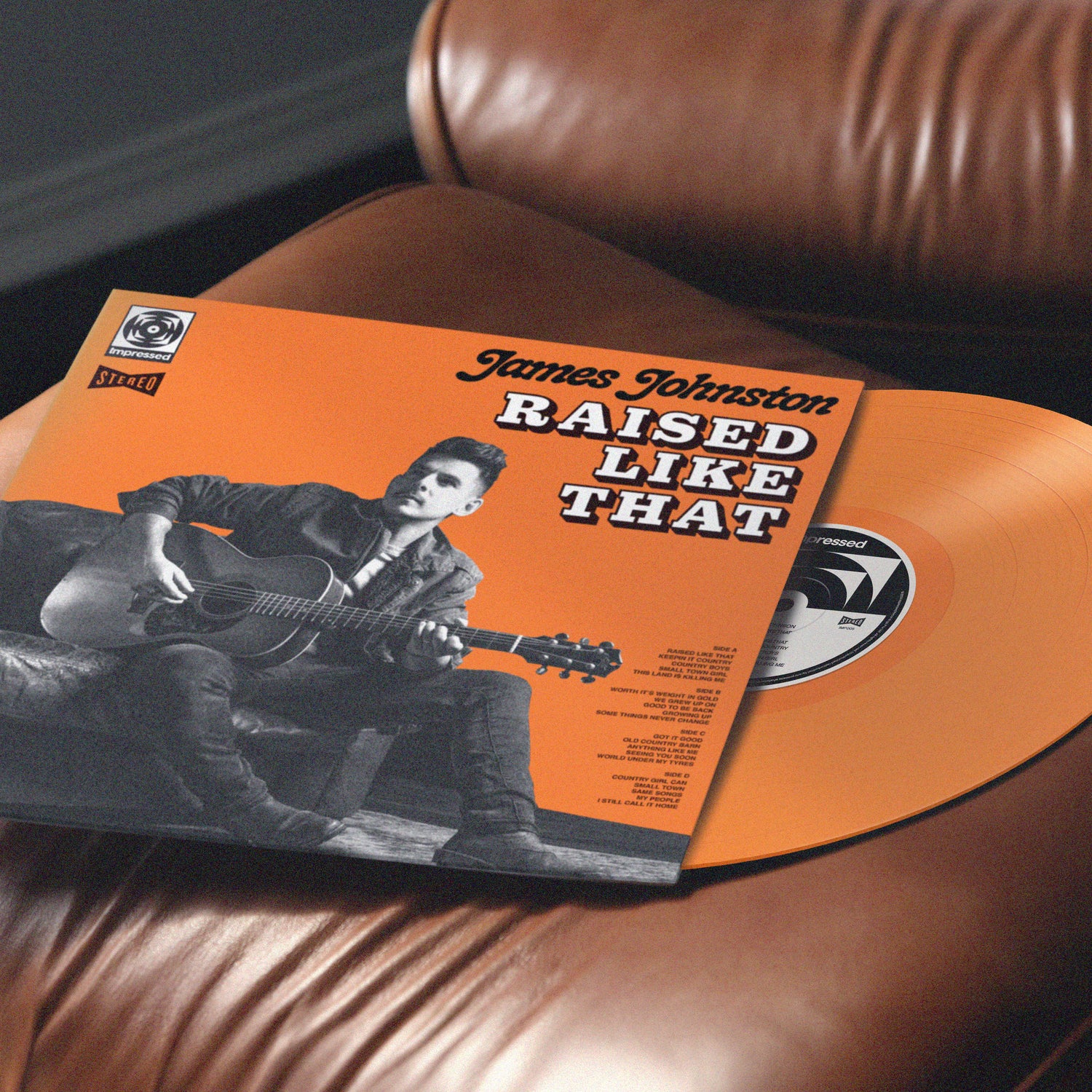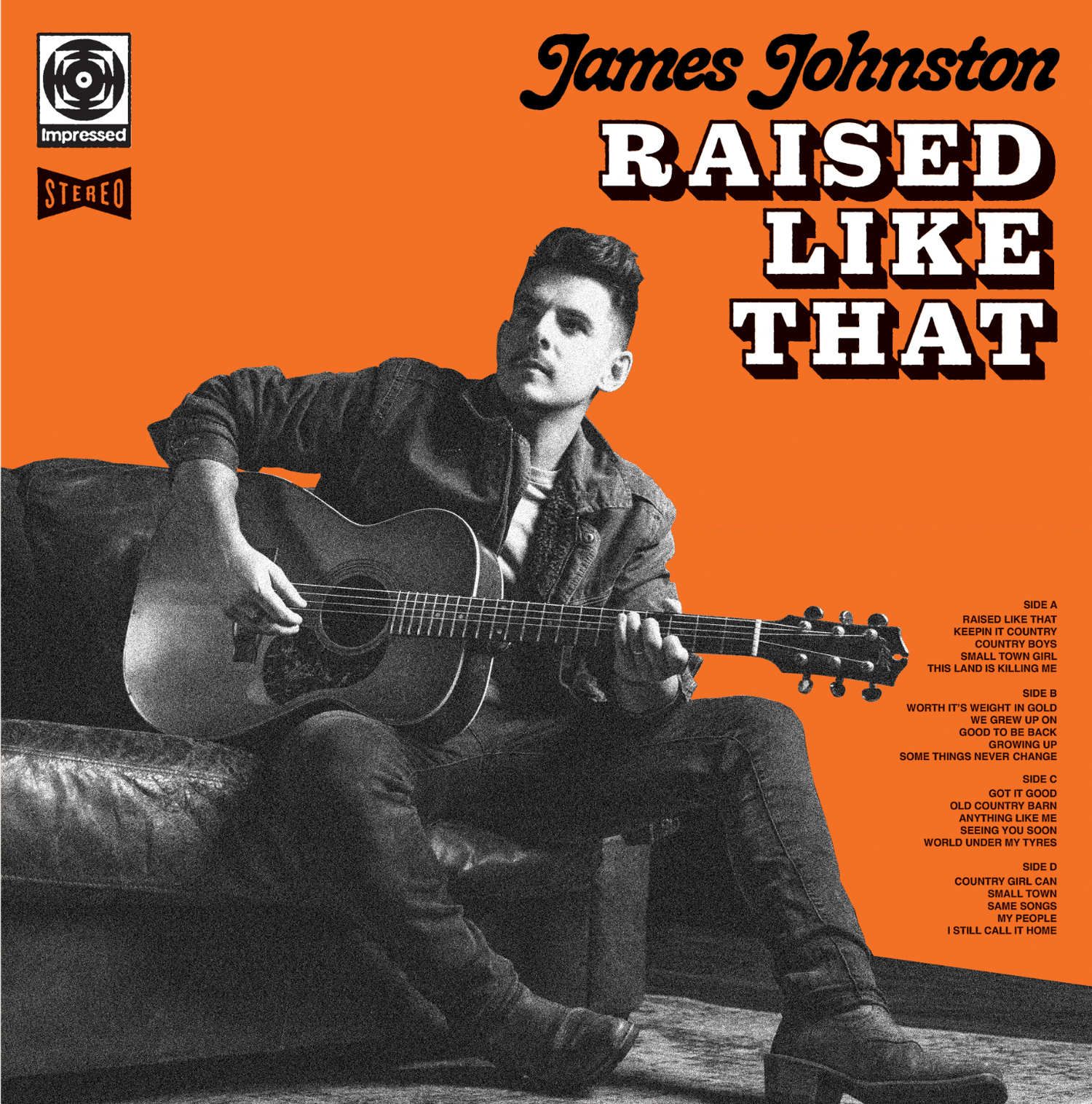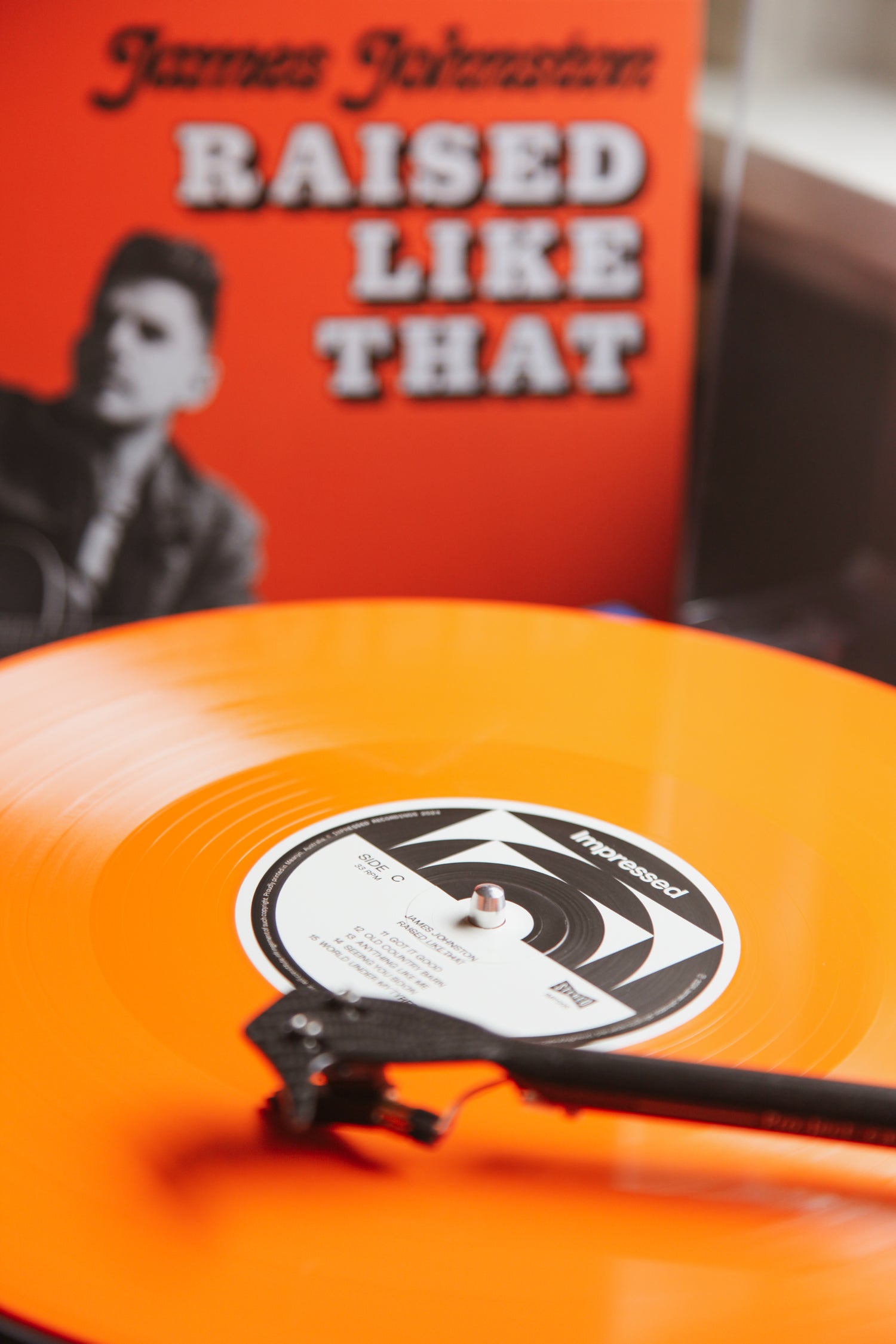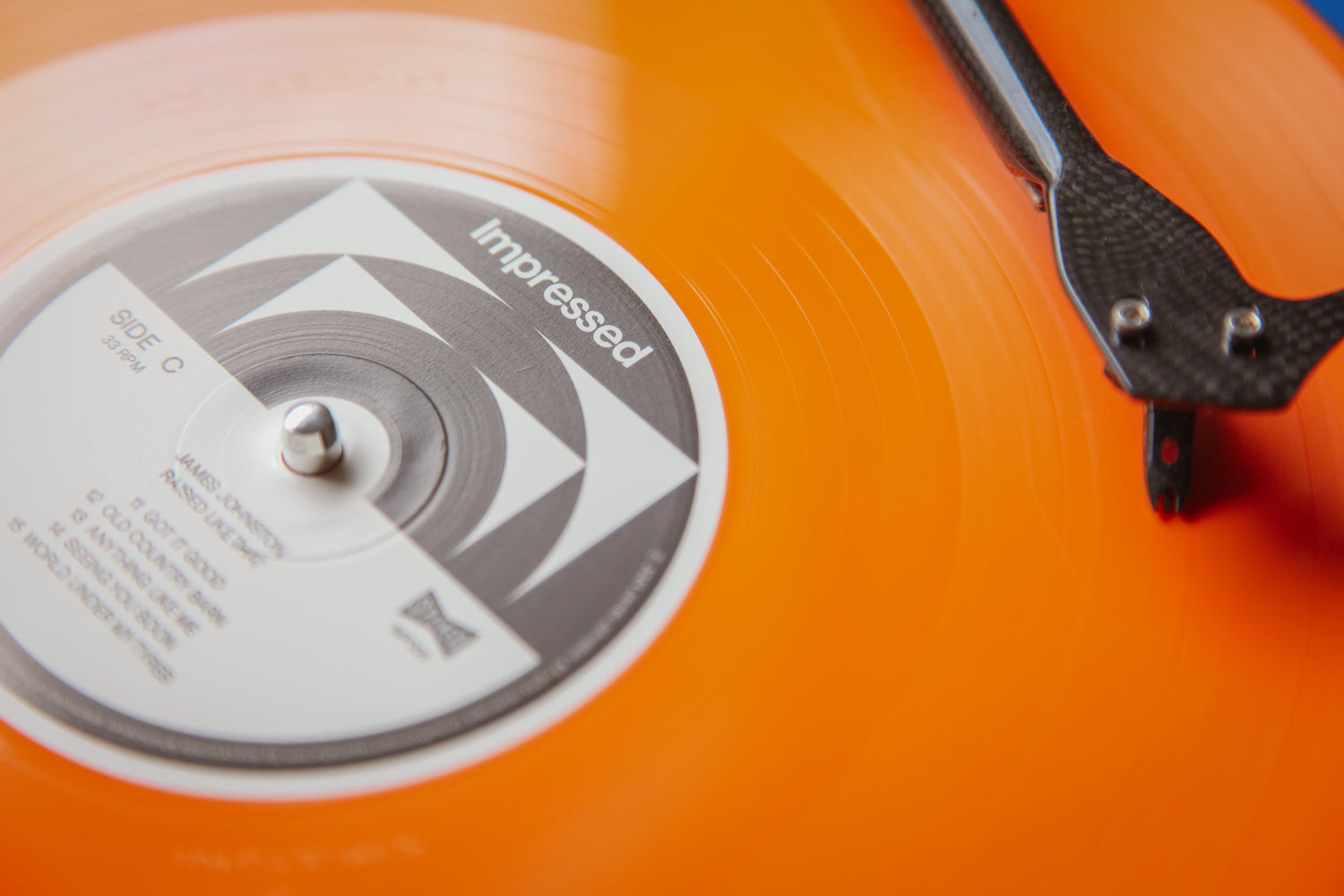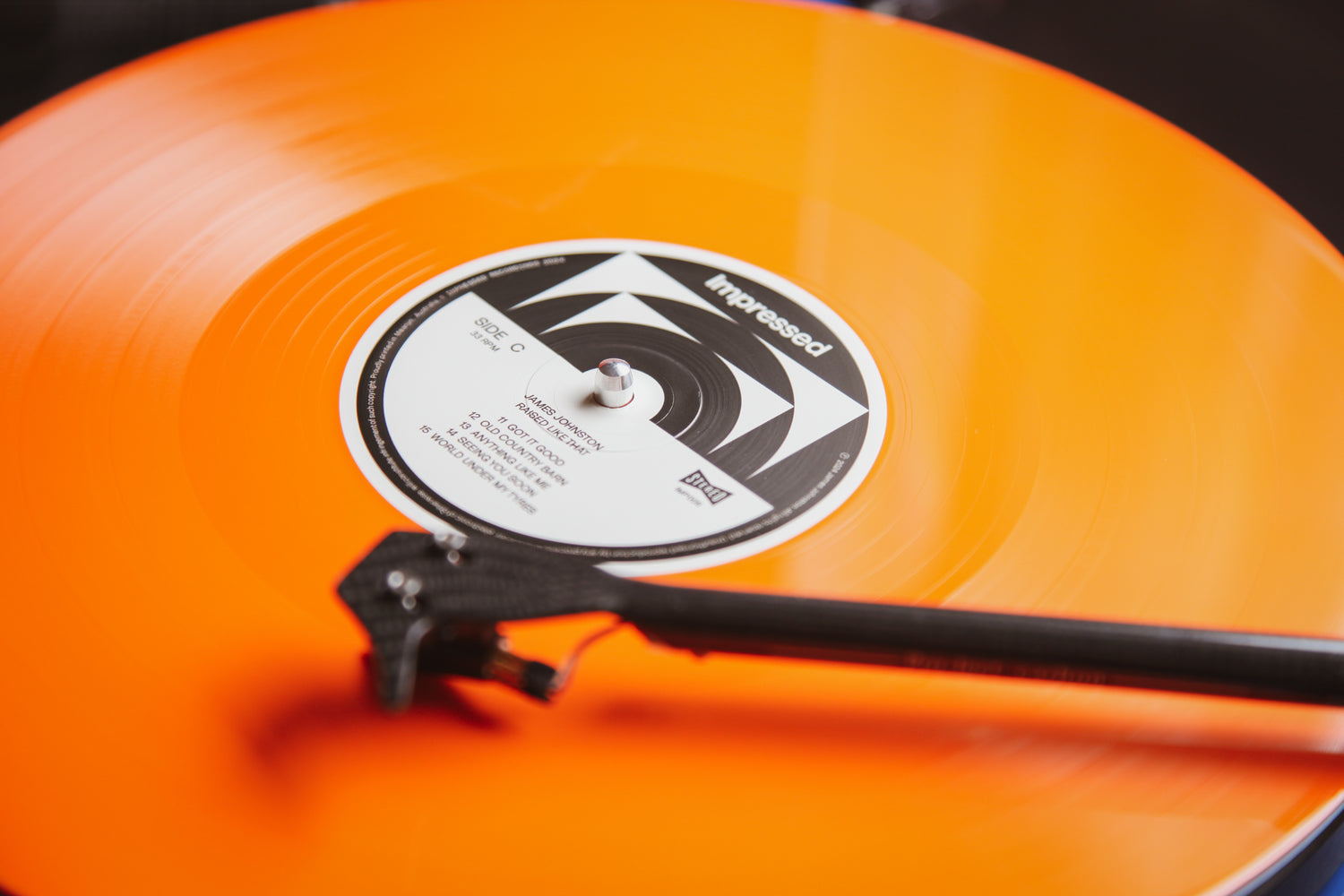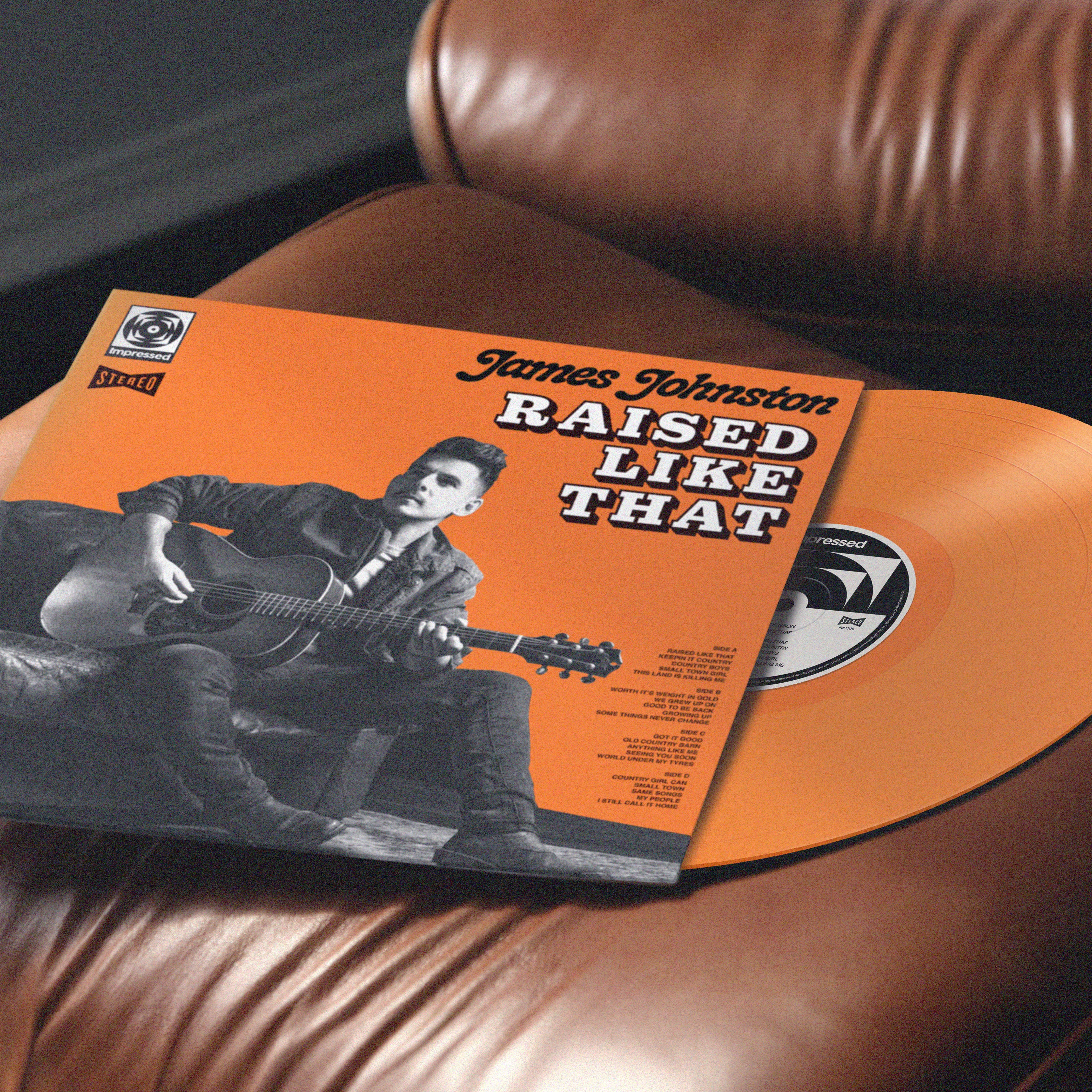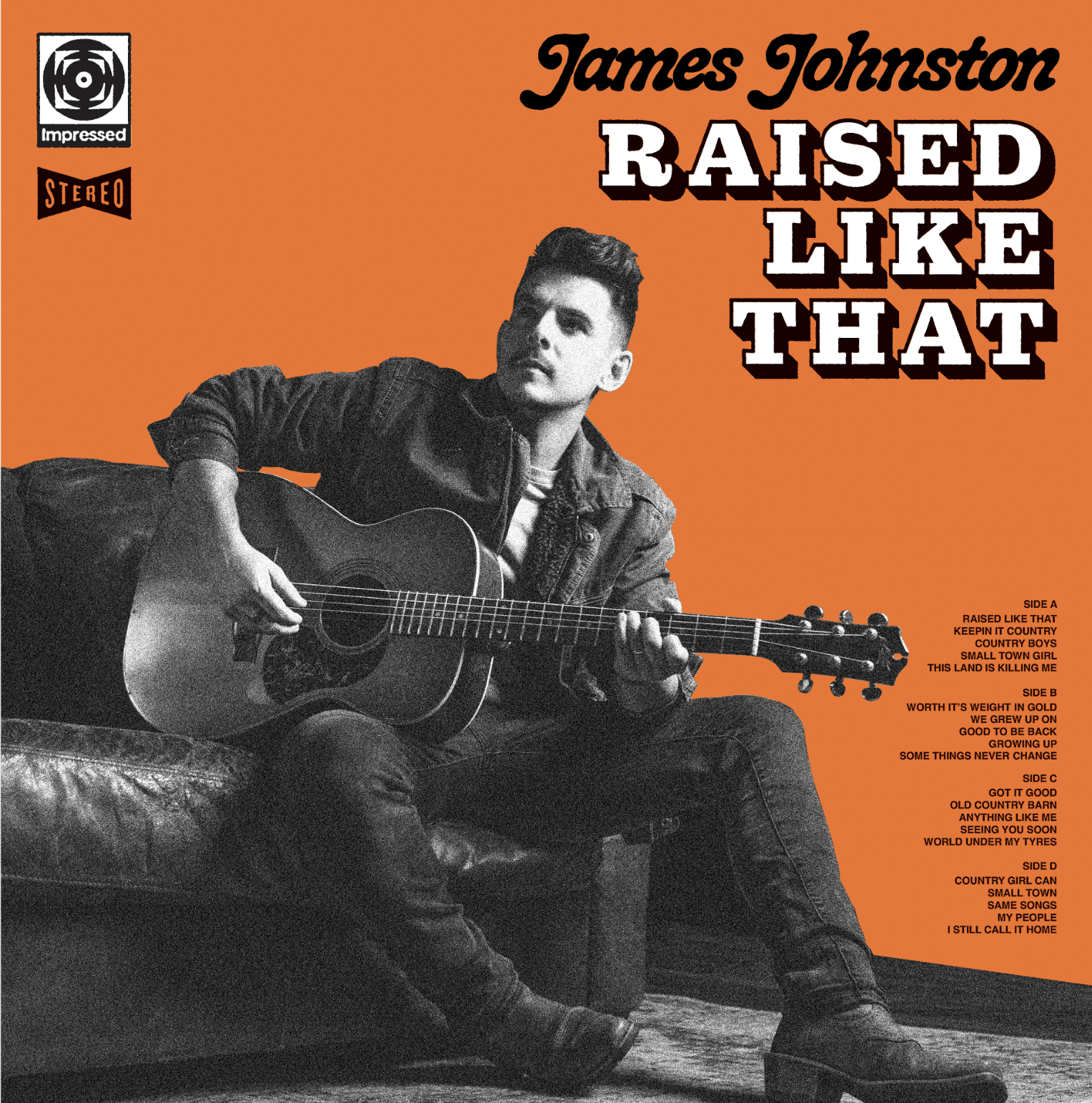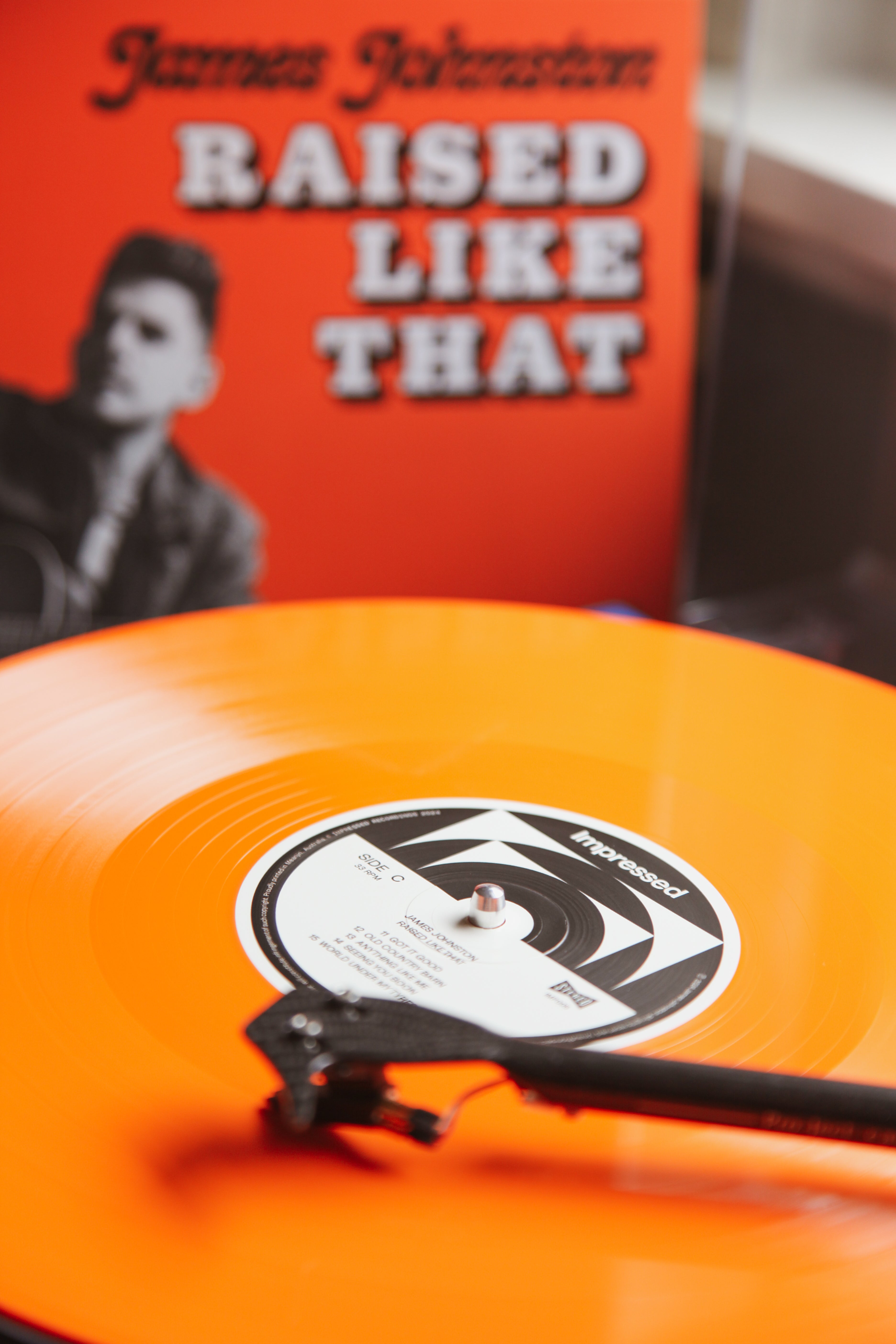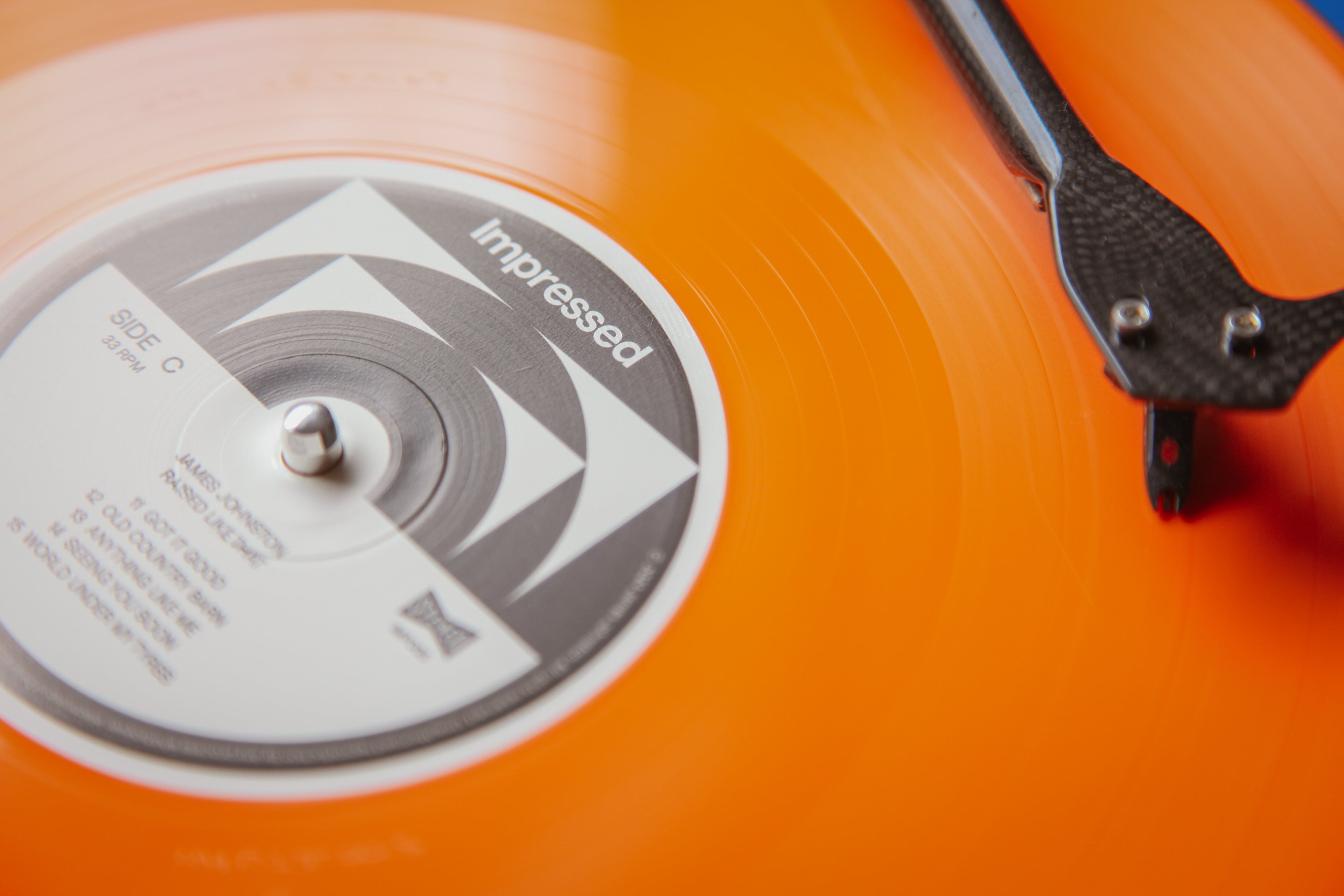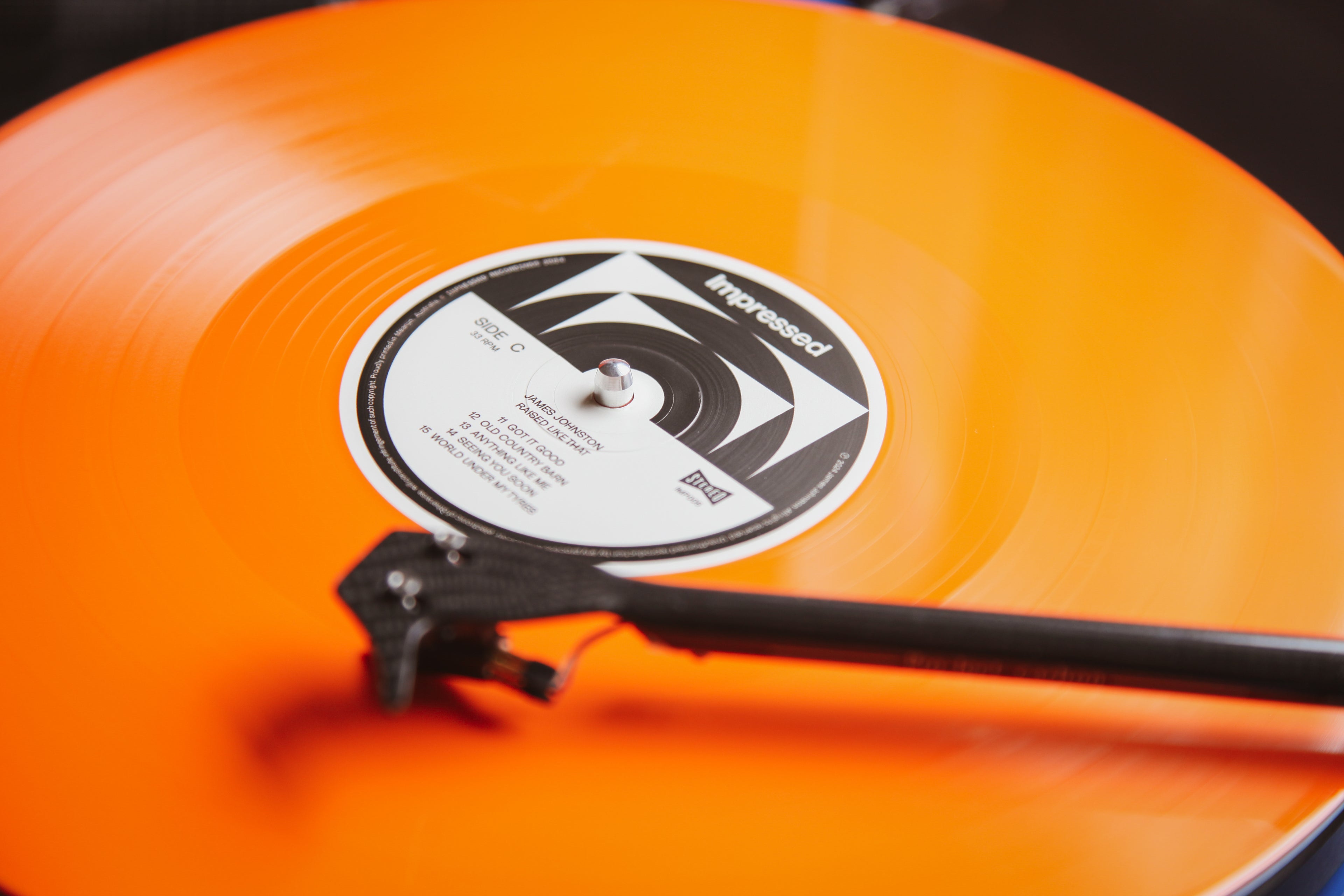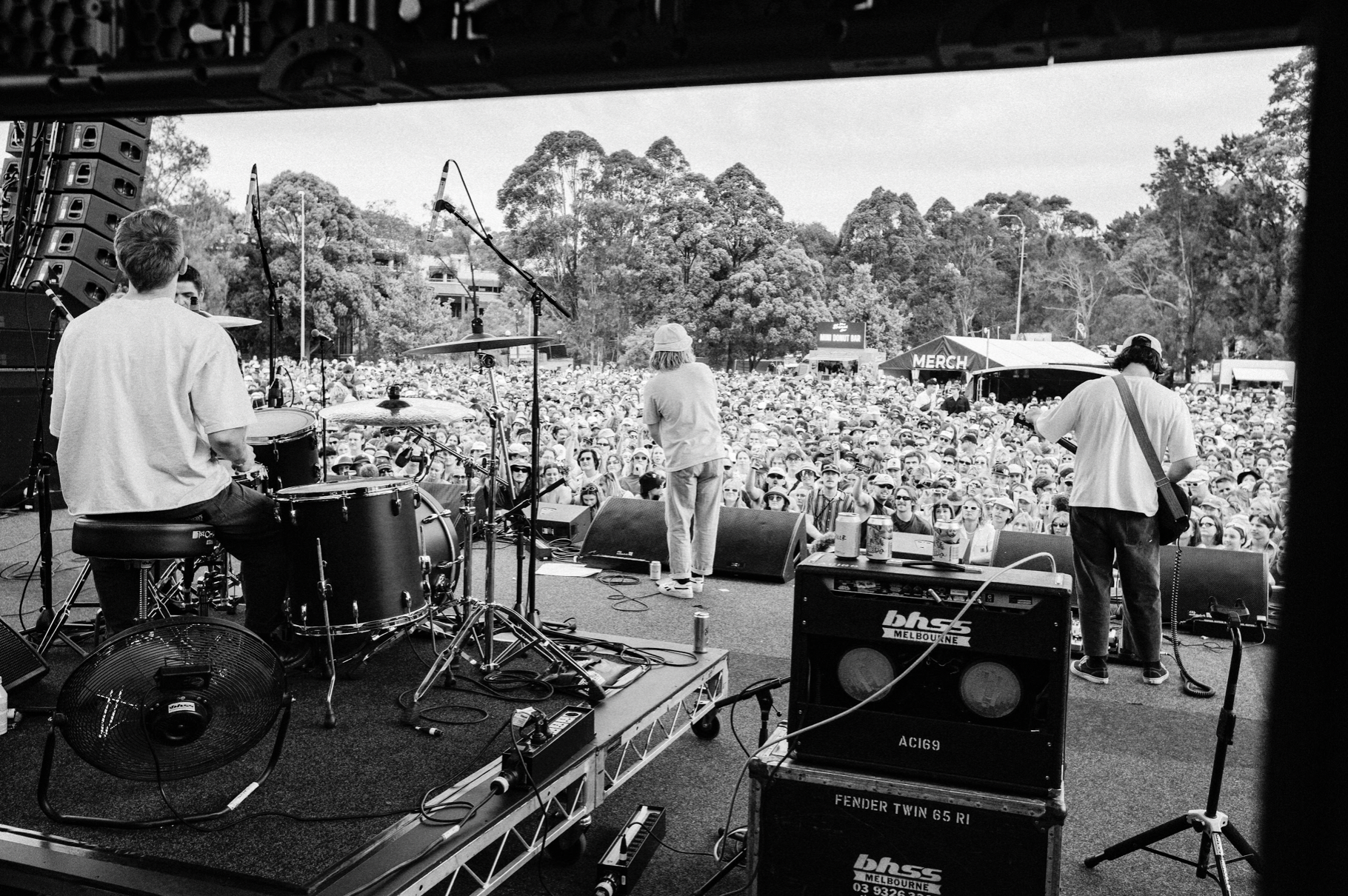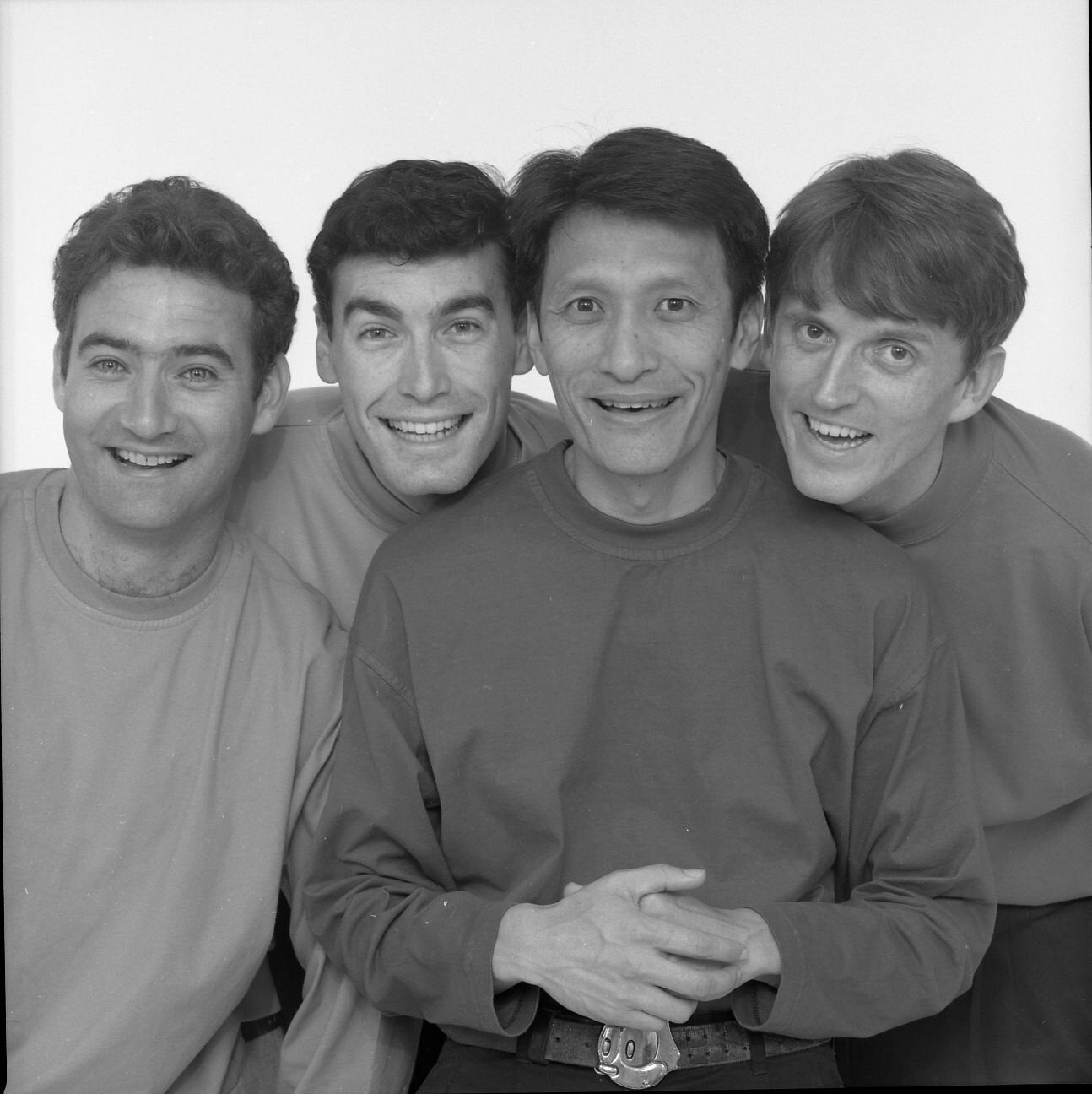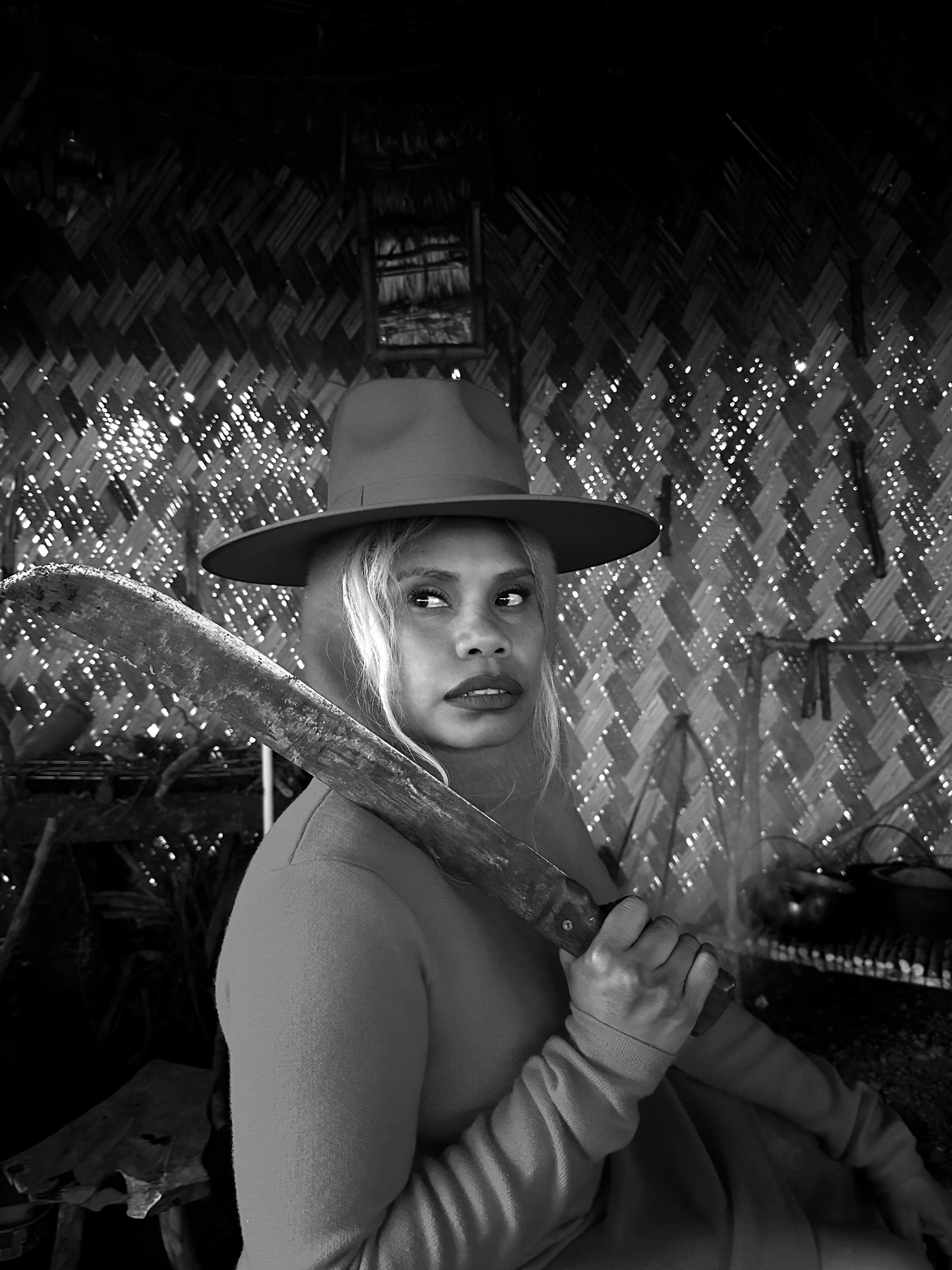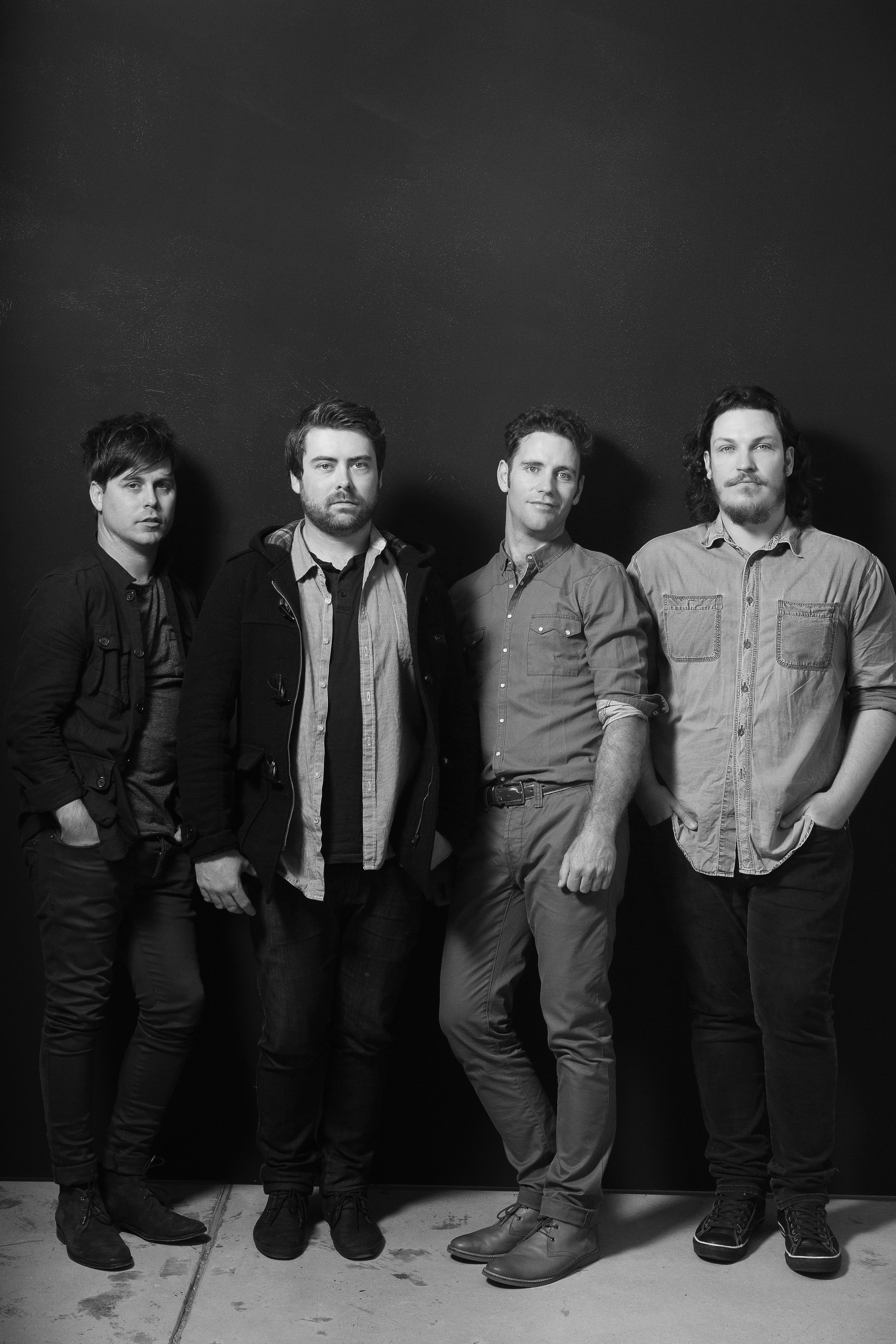There are some sounds that only make sense in context; that when listened to in a different space and time, don’t translate. The sonic equivalent of those patterned harem pants you bought in Rishikesh, now that you’re back in the office. Music is site-specific, in so many ways; the enjoyment of it has as much to do with the surroundings, the company and the nostalgia, as the beats themselves. Then there are songs that survive re-contextualisation; albums that travel with us through geography and decades, from the place and time when it first made sense, to bring a little of that otherworldliness into our everyday lives. To help make sense of what and where we’ve become. James Johnston could so easily slip into context-specific greatness; yet he transcends.
The giveaway of a great musician, for me, is simple - tears in the eyes of their crowd during a live performance. And not just the women, in the men’s eyes too. I saw it with Liam Gallagher, Paul McCartney, Taylor Swift; and I saw it with James Johnston.
There was talk in the camp at the Gympie Music Muster in 2022 about this guy, who really, like, really knew how to draw a crowd. We stood at the back of the stage as women screamed, flung their arms around, sang every word of every song. As grown men threw their shirts off, climbed on their mates shoulders; and wiped tears away with hairy, tanned arms holding beers.
We left that stage, our RM Williams boots and Akubra hats - all so new they gave away our city-slicker-turned-country-dress-up for the festival - and we all felt like we’d missed a trick. James Johnston, I remember thinking, remember that name.
The years that have followed have been filled to the brim for Johnston. The music industry has recognised him with Best New Talent nominations by Rolling Stone Magazine, Golden Guitar awards. But most importantly, his audience has recognised him with phenomenal reactions to his debut album. 55 million streams online, sold out shows all over the country.
It’s a collective industry and audience approval that any musician in Australia would dream of. When we caught up recently, Johnston talked a lot about telling his story.
“I want other people to see themselves in my music, that’s what it’s all about… I was culling down from hundreds and hundreds of songs for the album and when I got down to about twenty songs, I thought, ‘This is the story that I want to tell’, and I don’t want to compromise on that.”
And ultimately, Johnson connects because he’s really a storyteller, more than a country music singer, and because he’s telling the stories that so rarely get a chance to breathe into life.
Johnson’s lyrics eclipse a generic country formula of song writing about utes and beers; he writes in depth about farmer suicide and the more difficult aspects of living on the land. “I’ve lived that life, so many of my stories are inspired by my upbringing or the people I’ve met along the way. There’s certain songs on the record, for example, ‘This Land Is Killing Me’, you know, I’m a musician now, I’m no longer out there owning a big property where I have to survive, but so many people who I surround myself with do, they live and breathe the land and they work the land every single day and the struggles they face. That song, was inspired from when my Dad went through a bad accident about five years ago, and as part of that, he went to a lot of these mens sheds around the local farming area and talked to them about mental health. And mental health struggles are just so prevalent, rates of suicide are really high in farmers because it’s a really tough life. You know, you go through droughts and there’s the stories of, I remember someone who works within a mental health organisation of the farming communities said this to me, they said one of the highest rates of suicide happens after it rains because people go through such long periods of drought, they lose their money and their stock and then it rains, and they look out at their property and it’s all green - but they have no money to put any cattle on there or crop or capitalise on it. And that’s the struggle of farming life, it’s not an easy life. And I wanted to tell these stories, some of them are my stories and some are other people’s stories, I wanted to tell the realities. And I think my music is, when people listen to my songs, there will be people who are going through versions of these stories themselves and hopefully they can listen to my music and realise I’m not the only one, I relate to this, clearly other people are going through this. I want other people to see themselves in my music, that’s what it’s all about. “
“There’s a line in the song called ‘Good To Be Back’, the second verse, ‘He’s got me fixing fences, making sure I ain’t lost that country heart, my hands have still got a callous’. What I like about that line is whenever I go back to the farm, my Dad always gets me out fencing and all of that sort of stuff, for me there’s just something really personal. He’s always like, ‘I hope you haven’t been doing all this music stuff and softened up too much, make sure you can still straighten up a fence.’ “
If all musicians have a moment that calls them to a sonic world, an urge to make music; Johnstons came young.
There is a sense of nostalgia in the beats. A rear-view mirror of a community that does it tough a lot of the time, inspiring a new breed of vulnerability in the lyrics of his music. A longing for a life and the loved ones left behind. What is a more humanising topic to sing about than life and love lost? In fact, it’s the basis of most great art; sonic, written and visual. Johnston exemplifies the human condition, that we are more similar than we are different. In ‘Raised Like That’, Johnston offers us a celebration of his world, in raw, humanising vulnerability.
And ultimately, its sonic passage sheds light on his extraordinary ability to cohesively produce an album that offers a nod to our collective humanity - and to make it sound as relevant in my living room in Bondi as that stage in a forest in Gympie surrounded by Akubra hats. That is an impressive musical feat, and worth being celebrated, supported and listened to again and again; in all the contexts.

